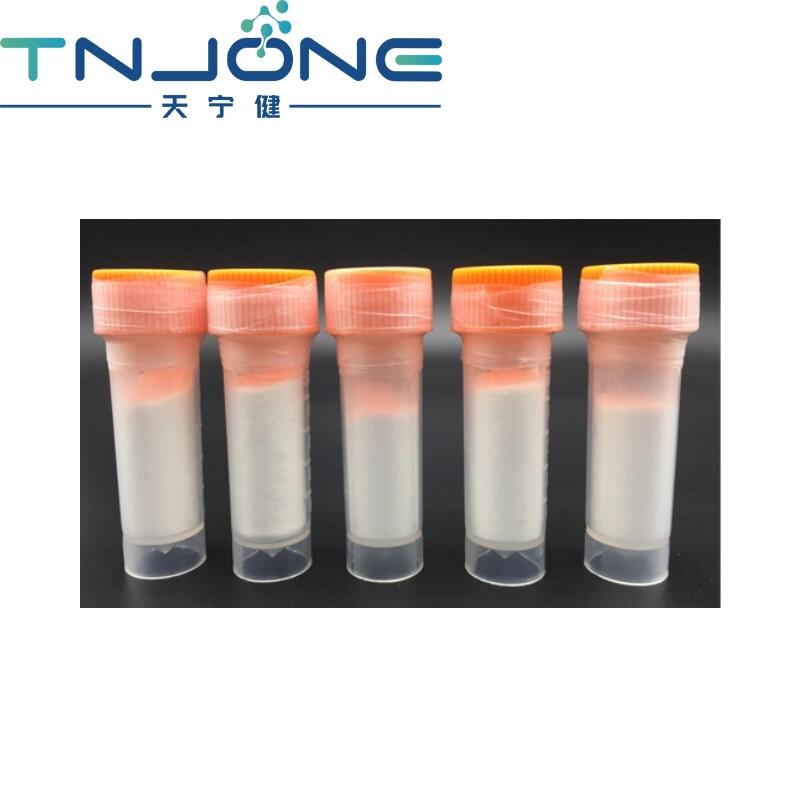-
Categories
-
Pharmaceutical Intermediates
-
Active Pharmaceutical Ingredients
-
Food Additives
- Industrial Coatings
- Agrochemicals
- Dyes and Pigments
- Surfactant
- Flavors and Fragrances
- Chemical Reagents
- Catalyst and Auxiliary
- Natural Products
- Inorganic Chemistry
-
Organic Chemistry
-
Biochemical Engineering
- Analytical Chemistry
-
Cosmetic Ingredient
- Water Treatment Chemical
-
Pharmaceutical Intermediates
Promotion
ECHEMI Mall
Wholesale
Weekly Price
Exhibition
News
-
Trade Service
In a new study, researchers at the Perelman School of Medicine at the University of Pennsylvania in the United States found that autophagy in embryonic stem cells called CMA,molecular companion-mediated autophagy, a molecular companion-mediated autophagy, could serve as a new therapeutic target for repairing or regenerating damaged cells and organs.
the results of the study, published in the July 24, 2020 issue of the Journal of Science, are entitled "Chaperone-mediated autophagy regulations the pluripotency of the stem-dome cells".
the human body contains more than 200 different types of specialized cells.
all of these cells can be differentiated from embryonic stem cells (ESCs).
embryonic stem cells constantly update themselves while retaining the ability to differentiate into any cell type in an adult animal, a condition known as pluitor.
scientists already know that cell metabolism plays a role in this process, but it's unclear how the cell's internal wiring works to maintain this state and ultimately determine the fate of stem cells.
this new preclinical study for the first time shows how embryonic stem cells keep CMAs low to promote this self-renewal, and we have revealed two new ways that can manipulate embryonic stem cells to self-renew and differentiate to turn off this inhibition to enhance CMA activity and differentiate them into specialized cells. "This is an intriguing discovery in stem cell biology for people who want to develop tissue or organ regeneration therapies," said Dr. Xiaolu Yang, a
paper author and professor of cancer biology at the University of Pennsylvania's Perelman School of Medicine.
we reveal two new ways that could manipulate embryonic stem cells to self-renew and differentiate: the CMA and a metabolite called alpha-ketoglutarate, regulated by the CMA.
reasonable intervention or guidance of these functions may be a powerful way to improve the efficiency of regenerative medicine methods.
" autophagy is a cellular phagocytosis mechanism necessary for most organisms to survive and function.
when cells are autophagy, the substances in the cell are sent to the lysosomes, which are the organelles that help break down the substances.
autophagy comes in several forms.
, however, cmA is mammalian, unlike other forms in which all eukaryotic cells exist.
so far, the physiological role of the CMA remains unclear.
the researchers used metabolomics and genetic laboratory techniques on embryonic stem cells in mice to try to better understand the major changes that occurred in their pludal state and subsequent differentiation.
the researchers found that CMA activity remained at a minimum because two cytokines Oct4 and Sox2, which are vital to pluripotentity, inhibited a gene called LAMP2A, where LAMP2A-based is used to produce a protein called lysozymatic-related membrane protein-2.
they found that this minimal CMA activity allows embryonic stem cells to maintain high levels of alpha-ketone diacid, of which alpha-ketone diacid is a metabolite critical to strengthening the cell's polyphonic state.
when it came to differentiation, embryonic stem cells began to raise cmA due to the decline of Oct4 and Sox2.
enhanced CMA activity results in the degradation of the key enzyme responsible for the production of alpha-ketone diacid.
this leads to a decrease in levels of alpha-ketone diacid and increased cell activity to promote differentiation.
these findings reveal that CMA and alpha-ketone diacids determine the fate of embryonic stem cells. embryonic stem cells
are often referred to as pluripotent stem cells because they produce every cell type in the body except the placenta and umbilical cord.
embryonic stem cells not only provide an excellent system for the study of early development in mammals, but also have great potential for developing regenerative therapies for various human diseases.
Stem cell-based regenerative medicine has grown rapidly over the past decade, and studies have shown several ways to repair damaged heart tissue, replace cells in solid organ transplants and, in some cases, neurological diseases. "The role of this newly discovered autophagy in embryonic stem cells is the beginning of further research that could lead to researchers and physicianscientists gaining a better approach to various diseases," said
Yang.
"







